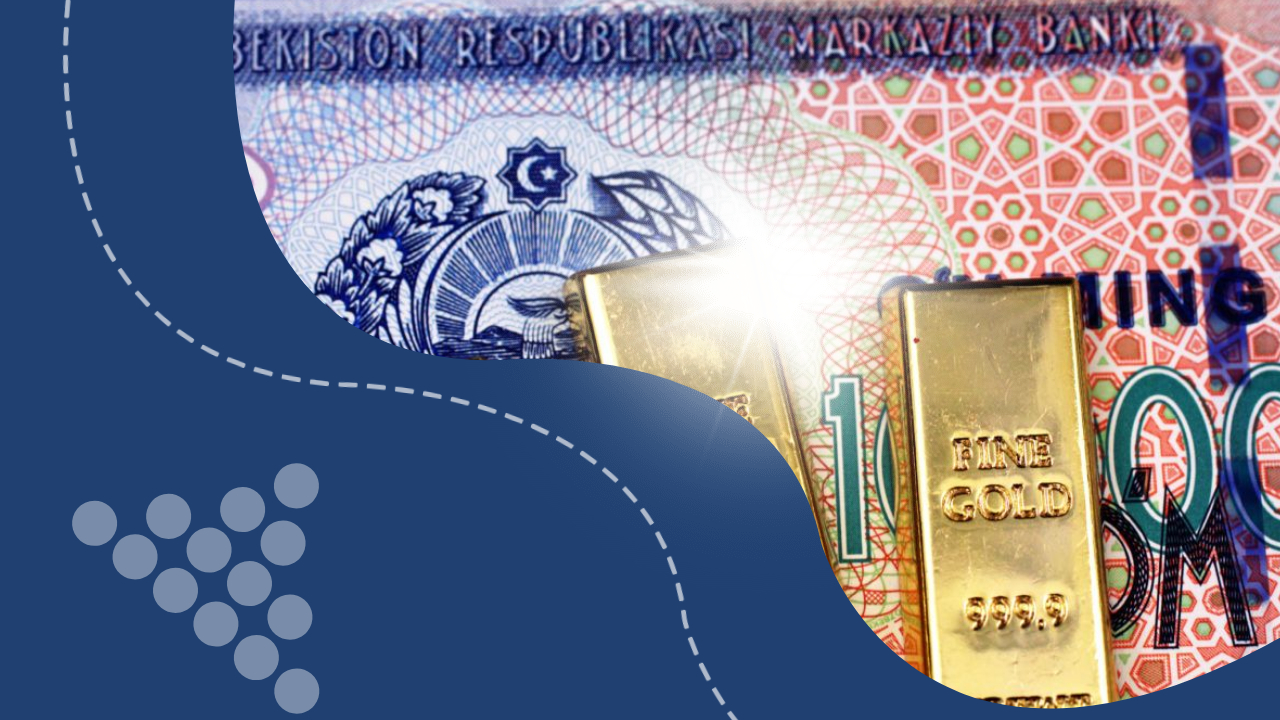According to the World Gold Council, Uzbekistan ranked 10th in the world in terms of gold production (110.8 tons) in 2023.
Industry sources suggest that Canadian gold mining company B2Gold is preparing to exit Uzbekistan. While the specific reasons remain unclear, the decision may be linked to the challenges of operating within the country’s state-controlled mining industry.
The company first announced its investment plans during the round table of the MINEX Uzbekistan Forum, held in Tashkent on 17 May 2017. According to the Foreign Investment Promotion Agency, B2Gold entered the market in 2018. In 2019, B2Gold invested $2.18 million in projects in Uzbekistan, and in 2020, more than $3 million. In July 2023, Reuters reported that B2Gold Corp was considering additional opportunities to acquire gold assets to accelerate growth. The company’s CEO, Clive Johnson, said the company was looking at assets that are already operating, not those that are in development. Since B2Gold’s projects in Uzbekistan are at an early stage, this may have been the main reason for the company’s management to close the branch in Tashkent to concentrate on consolidating production assets with smaller producers in other countries of the world. In addition to Canada, where B2Gold acquired the Sabina Gold deposit in April 2023 for C$1.1 billion (US$832.1 million), the company is engaged in gold mining in Mali, Namibia and the Philippines.
On November 6, 2023, Minister of Mining and Geology Bobir Islamov announced the development of a new subsoil law. This law aims to attract foreign investment by improving the legal framework for mining operations, providing transparent regulations, and reducing tax rates. Islamov emphasized that Uzbekistan spends $230 million annually on geological exploration and that the new law, developed in partnership with international consultants, will clearly outline opportunities for investors. As a positive result of these efforts, companies like the French Orano Mining and Canadian juniors, such as B2Gold, have begun investing in Uzbekistan’s mining industry.
On November 6, 2023, Minister of Mining and Geology Bobir Islamov announced the development of a new law on subsoil use. He emphasized the need to accelerate geological exploration, an area where Uzbekistan spends roughly $230 million annually. “To attract investors, of course, we need a very good legal framework – transparent and stable. To do this, together with consultants from the European Bank for Reconstruction and Development, with the involvement of international consultants from the Boston Consulting Group, we have developed a new law on subsoil use that provides direct action to clearly delineate and show all the opportunities for investors, their obligations, and, most importantly, the order of the game,” he said. Islamov specifically noted that tax rates for using subsoil were reduced, including a reduction from 10% to 7% on gold and copper, and from 10% to 2.7% on tungsten. These changes have helped attract companies like the French Orano Mining and Canadian juniors, including B2Gold, to invest in Uzbekistan’s mining industry.
On January 15, 2024, President Shavkat Mirziyoyev reviewed progress and plans for the geological sector, a strategic area for Uzbekistan’s growing economy. The country has committed significant resources, allocating around 1 trillion soums per year (about $80 million), resulting in the exploration of 31,000 square kilometres. This investment focus has attracted $1.7 billion in investment projects to the industry.
Two weeks later, on 1 February 2024, President Shavkat Mirziyoyev reviewed development plans for Uzbekistan’s metallurgical sector. The extraction of gold and other solid minerals is centralised under four state-owned enterprises: the Navoi Mining and Metallurgical Combine, the Almalyk Mining and Metallurgical Combine, the Uzbek Metallurgical Combine, and the Navoi uran State Enterprise. These enterprises have received significant investment in recent years, totalling $7.4 billion.
Uzbekistan has an ambitious goal of doubling its economy by 2030. This growth is reflected in the increasing role of national enterprises. Over the past six years, their share within the overall industry has grown from 10% to 17%, and their contribution to budget revenues has increased from 11% to 25%.
The departure of Uzbekistan’s sole foreign gold mining investor, B2Gold, creates uncertainty about the international market’s reaction. This uncertainty is heightened by past experiences, such as Newmont (the world’s largest gold mining company) leaving the country in 2006 due to unfounded tax claims by the Uzbek government.
Uzbekistan’s mining development plans and strategies will be presented at the National Mining and Metallurgy Company (NGMK) booth #2744 at the PDAC convention in Toronto from 3-6 March 2024. The Uzbek delegation will be represented by leading specialists and heads of companies and government organizations, including the Ministry of Mining and Geology, Department of Strategic Development and Investments, Department of Energy Resources Development, Department of International Cooperation and Investment Attraction, Almalyk Mining and Metallurgical Combine, Navoi Mining and Metallurgical Combine and Navoiuranium.
The 10th Mining and Exploration Forum MINEX Central Asia will be held in Bishkek on 18-20 June 2024. The Forum will provide an international platform for assessing the investment potential of the countries of the region and discussing strategies for attracting foreign investors to explore promising deposits of critical ores and metals in Central Asia, including Uzbekistan.





